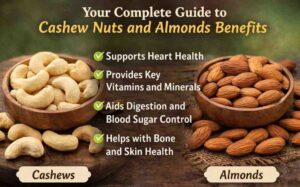
Best Ways to Eat Egyptian Seeds and Their Amazing Health Benefits

Introduction
Seeds have been an important element of human nourishment for thousands of years, and Egyptian seeds are some of the most important. People have cherished these seeds for a long time since they are full of nutrients, taste earthy, and can be used for many things, including cooking and medicine. Egyptian seeds are getting a lot of attention again because they have so many health benefits and may be utilized in everyday meals.
This blog will present various methods for consuming Egyptian seeds, discuss their health benefits, and explain why they are a beneficial daily choice for your well-being.
What Are Egyptian Seeds?
Egyptian seeds typically refer to a variety of nutrient-rich seeds grown in Egypt and surrounding regions. Some of the most popular ones include:
- Sunflower seeds
- Pumpkin seeds
- Sesame seeds
- Black seeds (Nigella sativa, often called black cumin)
- Watermelon seeds
Each of these seeds is full of healthy fats, plant protein, vitamins, and minerals that your body needs. People in the Middle East and Mediterranean used to eat them raw, roast them, or add them to bread and sweets.
Best Ways to Eat Egyptian Seeds
1. Eating Seeds Raw
Taking in raw seeds Egyptian seeds are the best-tasting, most nutritious way to eat them. To help your body process pumpkin, sunflower, or sesame seeds better, you can eat them dry or a little wet. Some enzymes and vitamins can’t handle heat, but this way keeps them safe.
2. Roasted as a Snack
People all over the world love to snack on seeds. Roasting them makes them taste better and makes them crunchier. People in Egypt like to eat watermelon or sunflower seeds that have been warmed up a bit and covered with salt. But if you want to stay healthy, stay away from too much salt and heavy oil.
3. Sprinkled on Salads and Meals
Adding Egyptian seeds to everyday meals can make them more intriguing and better for you. To make soups, salads, or rice meals taste better, roast sesame or pumpkin seeds and add them. They also add nutrients and protein.
4. Ground into Pastes or Powders
Ground sesame seeds are often used to make tahini, a paste that is added to food and used in cooking. Furthermore, black seeds can be ground up and mixed with honey or warm water to make a traditional medicine that helps the defence system. These forms make it simple to eat seeds, even for those who don’t like them whole.
5. Baked into Bread and Sweets
Egyptians have been baking with seeds for a very long time. Sesame seeds are often put on the outside of bread crusts. You can also put pumpkin and sunflower seeds in energy bars or baked goods. This method makes baked goods healthy and tastes great.
6. Blended into Smoothies
A tablespoon of sunflower seeds or pumpkin seeds can be added to shakes to make them higher in protein, fibre, and beneficial fats. This pick is great for busy people who want to eat more seeds because it is easy to use.
Nutritional Value of Egyptian Seeds
While each seed variety has its own unique profile, most Egyptian seeds share some common nutritional qualities:
- Healthy fats – Omega-3 and omega-6 fatty acids that support brain and heart health.
- Plant protein – A sustainable source of protein for muscle repair and growth.
- Fibre – Promotes digestion and gut health.
- Minerals – Rich in magnesium, zinc, calcium, and iron.
- Antioxidants – Protect the body from oxidative stress and inflammation.
Health Benefits of Egyptian Seeds
1. Support Heart Health
Sunflower and pumpkin seeds contain antioxidants and good fats that lower bad cholesterol, improve blood flow, and lower the risk of heart disease.
2. Boost Immunity
People know that black seeds in particular can help your defence system. Together with the magnesium and zinc in pumpkin and watermelon seeds, they help the nervous system work better.
3. Aid in Digestion
Dietary fibre, found in seeds like sesame and sunflower, helps keep your gut healthy and moves your bowels regularly.
4. Strengthen your bones
Egyptian seeds contain calcium, magnesium, and phosphorus naturally. These minerals are important for keeping bones healthy and avoiding diseases like osteoporosis.
5. Boost Your Energy Levels
Seeds are a great natural energy boost because they are high in protein and calories. Adding them to your daily diet is good for athletes and those who live active lives.
6. Help keep skin and hair healthy
Sesame and sunflower seeds are good for your skin and hair because they are high in vitamin E and healthy fats. They also help keep skin and hair from getting dry and give them a young glow.
7. Keep your blood sugar levels
People with diabetes can benefit from eating pumpkin and sunflower seeds because they contain substances that help control blood sugar.
Tips for Including Egyptian Seeds in Your Diet
- Eat a small handful of mixed seeds daily for a balanced intake of nutrients.
- Avoid over-roasting to preserve healthy fats.
- Store seeds in airtight containers in cool, dry places to prevent them from turning rancid.
- Combine seeds with nuts and dried fruits for a wholesome trail mix.
- Use powdered seeds in curries, soups, or drinks for easy incorporation.
Final Thoughts
Egyptian seeds are more than just tasty snacks; they are nutrient-packed foods that can support your health when enjoyed regularly. From strengthening immunity and aiding digestion to improving skin and hair, their benefits are many. You can add them to meals in simple ways, whether raw, roasted, baked, or blended, and enjoy both flavours and nutrition. Making Egyptian seeds part of your daily diet is a small step that brings great rewards, blending ancient traditions with modern healthy living in one wholesome choice.



